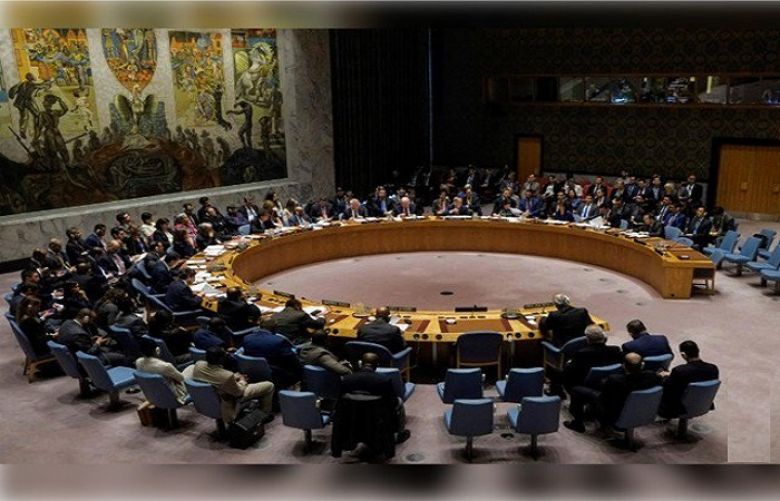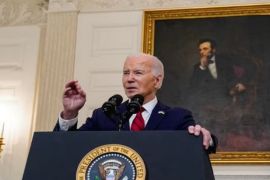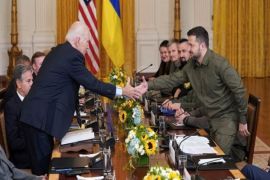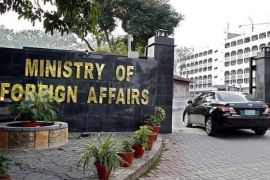The UN Security Council has failed to adopt Russia’s draft resolution condemning the recent joint airstrikes by the US, Britain and France on Syria, which came following an alleged chemical weapons attack on the Syrian town of Douma.
The resolution was rejected at an emergency meeting of the Security Council on Saturday that was convened at Moscow’s request, with three votes in favor, eight votes against and four abstentions.
The one-page draft resolution, read by Russia’s Permanent Envoy at the UN Vasily Nevenzya, condemned the military action against Syria and called on the three Western countries to "halt the aggression against the Syrian Arab Republic immediately and without any delay" and refrain from further use-of-force actions in violation of the UN Charter.
"By its actions, the US is increasingly aggravating the humanitarian catastrophe in Syria, bringing sufferings to civilians and actually conniving at terrorists who have been tormenting the Syrian people for seven years and provoking a new wave of refugees from that country and the region as a whole," it said.
The draft resolution noted that the strikes came at a time when experts of the Organization for the Prohibition of Chemical Weapons (OPCW) "started their work for gathering evidence of the alleged chemical attack in the town of Douma."
"It seems that it has finally become clear that those in the West who are exploiting humanitarian rhetoric and trying to justify their military presence in Syria by the needs to crush jihadists are actually aligning themselves with them and seeking to dismember the country," the Russian envoy pointed out.
In the Security Council meeting, Syria's envoy to the UN Bashar Jaafari condemned the strikes on Syria as a “flagrant violation of the UN Charter” and described the US and its allies as “liars and hypocrites" who are “supporting terrorists in Syria.”
Jaafari described that strikes by the US, Britain and France as “another message to the terrorists” that encourages them to use chemical weapons in their future attacks.
The “three aggressors” showed the terrorist groups that they can “continue to commit their crimes not only in Syria but in other countries,” he added.
The Syrian envoy said the airstrikes were aimed at preventing the OPCW investigation of the alleged incident in Douma and rhetorically asked why the three Western powers did not provide any evidence to the OPCW ahead of their attack on Syria.
In the early hours of Saturday, the US, Britain and France launched a barrage of missile attacks against Syria in response to what they claim to have been a chemical attack by the Syrian government in the town of Douma in the suburb of Damascus on April 7.
Syria rejected the accusations as “chemical fabrications” made by the foreign-backed terrorists in the country in a bid to halt advances by pro-government forces.
Syrian air defenses responded firmly to the Western powers’ attacks, shooting down most of the missiles fired at the country.
Syria's Foreign Ministry strongly condemned Saturday's strikes as a "brutal, barbaric aggression," saying they would only ignite "tensions in the world and pose threat to the international peace and security as a whole."
During the Security Council meeting, US Ambassador to the UN Nikki Haley expressed Washington's preparedness to launch more military strikes on Syria if Washington learns that the Syrian government carries out a chemical weapons attack.
"I spoke to the president [Donald Trump] this morning and he said: If the Syrian regime uses this poisonous gas again, the United States is locked and loaded," Haley said.
Haley expressed confidence that the recent military strikes against Syria had crippled what she called “Syria's chemical weapons program.”
Speaking to reporters before the Security Council meeting, Britain's ambassador defended the strikes as an appropriate measure to alleviate humanitarian suffering in Syria.
“The United Kingdom believes that it was both right and legal to take military action together with our closest allies to alleviate further humanitarian suffering,” British Ambassador Karen Pierce said.
The fresh strikes by the US marked the second time that US President Donald Trump has authorized attacks on Syria.
He had ordered a missile strike against Shayrat Airbase in Syria’s Homs Province on April 7, 2017. He claimed back then that the air field had been the origin of a suspected sarin gas attack on the town of Khan Shaykhun in Syria’s Idlib Province on April 4, 2017.







